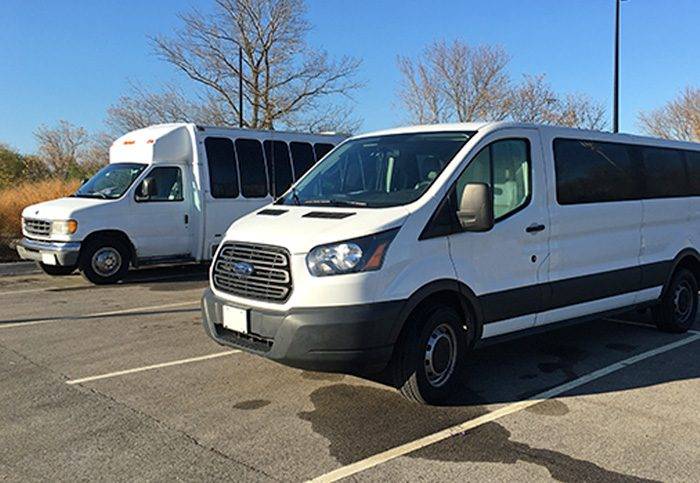If you’ve been injured in an accident of any kind while passenger in a transportation vehicle, you may be able to file a personal injury suit against the vehicle operator. Whether it was a medical trip, transportation of the infirm, or even a taxi ride.
People can be injured when the transport vehicle they are riding in is involved in an accident; people can also be injured if the transport vehicle does not adequately secure their wheelchair or if they fall entering or exiting the vehicle. At Jacobson, Schrinsky & Houck, our attorneys have the experience necessary to hold the transport vehicle operators liable when their passengers are hurt.
Did you know that one-half of Americans 65 and older do not have access to public transportation? And that more than half of all non-drivers 65 and older stay at home in a given day because they don’t have transportation options. Those in rural areas and small towns are particularly affected because the transportation options are limited.
But it’s important for seniors to remain mobile to keep their social independence with friends and family; to reduce feelings of isolation and loneliness, and many other life-prolonging benefits.
A Difficult Senior Decision – Is it Time to Stop Driving?
For some seniors the answer is obvious. They may be too visually impaired to continue driving.
Just consider these vision and driving facts:
- Vision provides about 85% of information we need to make safe decisions when driving.
- A 60-year-old requires 10 times as much light to drive as a 19-year-old.
- A 55-year-old takes eight times longer to recover from glare than a 16-year-old.
- Older drivers can take twice as long to distinguish the flash of brake lights as younger drivers.
- Seniors continue driving “as long as possible because they are unaware of, or do not believe they have, alternative means of transportation.”
- Seniors “limit their driving or stop driving altogether because of functional difficulties.”
- “By the time they stop driving, many older adults are so disabled that they are unable to use most public and para-transit systems.”
- “Next to health, transportation is the most important issue for seniors.”
This leads to the need for seniors to take advantage of transportation services when friends and family aren’t available.
Types of Personal Transportation for Seniors
- Volunteer Driver Programs are usually faith-based or nonprofits with a network of volunteers who offer transportation to for shopping, recreation, doctor’s appointments and other needs. Reservations are required. Cost is minimal and sometimes free.
- Para-transit Service: Private agencies provide transportation using minibuses or small vans to the elderly or those with disabilities.
- Door-through-Door Service: Private agencies provide drivers who offer personal assistance (wheelchair help, help with bags, etc.) through a passenger’s door and on through the door of their destination and back.
- Most metro areas will have a number of personal transportation options from mom-and-pop operations to larger organizations like the Supplemental Transportation Programs for Seniors (STPs), which are grassroots organizations run by staff and volunteers and funded through grants and donations.
- ITN (Independent Transportation Network) America uses paid and volunteer drivers to provide door-to-door service 7 days a week, 24 hours a day. There’s a pick up charge and mileage charge with a minimum est. charge of $9 per location. There’s also a $40 membership fee. Check your local network for current pricing.
Assessing a Transportation Provider
As you begin to research transportation providers, consider these questions:
- Are there any requirements to qualify for the service?
- Are the rides for wheelchair users and the disabled?
- Are family members able to serve as an escort? Is there an additional charge?
- Is the service door-to-door or curb-to-curb?
- What is the service area?Will the driver assist with bags, wheelchairs, etc.?
- Are rides provided on the weekends, evenings and holidays?
- If others are riding at the same time, what is the maximum time for pick up and drop off?
- What is the cost?
- How are fees calculated?
- Are there any discounts? E.g., Is my income a factor?
- Is there a membership fee?
- Is a reservation needed?
- How far in advance?
- Will my insurance pay for rides?
Seniors maintaining their independence is crucial for healthy and active aging. A big part of independence is transportation. If you or a senior family member are unable to drive, consider using personal transportation but do your homework first.
If you have a loved one has been injured in a transportation vehicle accident, contact Jacobson, Schrinsky & Houck today at: 414-223-4444 or online at: www.jsh-law.com/contact-us
Personal Injury Attorneys – Jacobson, Schrinsky & Houck – Experience – Compassion – Results




